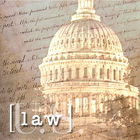
Under Article VI of the US Constitution: Under Article 1 of the Convention against Torture: Under Article 2 of the Convention against Torture: Under Article 4 of the Convention against Torture: Under the US Foreign Assistance Act: Under Article I, Section 8, of the US Constitution: Under US Alien Tort Claims Act (1789): ALSO VISIT |
BUSH AGREES TO McCAIN'S FULL BAN ON TORTURE, INHUMANE TREATMENT OF TERROR SUSPECTS 16 December 2005 President Bush has announced his support for Sen. John McCain's proposed ban on cruel, inhumane and degrading treatment of detainees in the "war on terror". The White House had opposed the ban, and the vice president had actively lobbied Congress to include an exception for the CIA. Sen. McCain repeatedly refused to weaken the ban, and both houses of Congress voted overwhelmingly to support it as written.
It would seem the White House had no choice, in light of international pressure, and faced with such support in Congress that, in theory, a veto would only diminish the president's position further, leaving him forced to sign against an overriden veto and against his will. The Los Angeles Times reported simply "McCain Held All the Cards, So Bush Folded". But, surprising as the announcement was that Bush would give full support for the ban, despite having actively opposed its passage at every stage... it was more surprising what ensued. Congressman Duncan Hunter almost immediately announced his intention to freeze negotiations on the bill containing the ban. His concern, as he expressed it, was that no US personnel be "harmed" by the ban. What precisely he means is not clear, but the rhetorical flourish seems to suggest he imagines soldiers or intelligence agents may come to unnecessary harm if not able to employ torture —a leap of reasoning which goes beyond existing law in its assumptions. Hunter is now demanding a "clarification" in writing from the White House, demonstrating conclusively that the president has sought input from the Pentagon and the intelligence agencies. Hunter's action, and the tone of his demand imply that he thinks the proposal should not become law unless all of that input is in favor. Any doubt, for Hunter, would seem too much to allow him to support a ban on torture. McCain and Bush, in announcing the agreement, noted that the ban is designed to protect and express core American values. There is also a train of thought that suggests an explicit ban will restore vital humanitarian credibility to US attempts to negotiate in other areas and may slow the recruitment of new insurgents in Iraq. McCain declared the new law would show the US "upholds values and standards of behavior and treatment of all people, no matter how evil or bad they are", adding that in the public eye, it will "help us enormously in winning the war for the hearts and minds of people throughout the world in the war on terror." The fate of the legislation is, as a result, unclear, but the 90-9 vote in support in the Senate, and the 308-122 (non-binding) vote in the House of Representatives to support the ban as worded indicate that Hunter too will have to accept the legislation. The issue is still unresolved and very serious across borders, and investigations in Europe may lead to new revelations about policies affected by the ban. UK Foreign Secretary Jack Straw is facing increasing pressure to answer questions about the so-called "ghost flights" related to the US policy of "extraordinary rendition". Tony Blair himself has said it would be "absurd" to investigate all US government planes entering or leaving the UK, as calls spread for a comprehensive, independent investigation. Poland has opened an investigation into alleged prison camps on its soil, and Spain, Germany, Italy, Sweden, and other countries are looking into allegations of unauthorized prisoner transfers. Italy has also sought to prosecute CIA agents allegedly linked to a kidnapping of a suspected terrorist, and is allegedly home to the Niger-intel forger. So passage of the McCain ban may change the tone of discourse in the US and may quiet some critics, in the absence of hard proof, but it is unlikely to lessen the crisis which some foreign leaders find themselves in, facing the brutal catch-22 in which they must either admit complicity in abductions and extrajudicial renditions or accuse the US of violating their national sovereignty. While some in the US have suggested Rice's trip was a ringing success, at least insofar as she gained diplomatic credentials by appearing to persuade European leaders that she was now the voice of reason and moderation in an administration whose policies are disliked across the continent, her attempts to clarify the US position on torture may have served to deepen the diplomatic crisis. Her carefully worded statements led to the perception that in fact she was looking for a way to define torture as justifiable. As a result, she seemed forced to acknowledge that the international Convention Against Torture governed all US personnel, wherever they might operate. This admission stunned the White House, which sought again to moderate her remarks and find exceptions. And while human rights groups suggested she was not unequivocal enough in demonstrating that US policy forbade torture, the remarks were greeted favorably by allies. So, as the diplomatic process evolved, and debate both before the public and in private meetings intensified, it looks as if it was dialogue, and a public conscience, which helped McCain to sway the White House, which found itself in the unusual position of being on the receiving end of an ultimatum: either you're against torture, or you're for it, no hedging allowed. [s]
RICE STAKES OUT "NUANCED" POSITION ON ABDUCTIONS, TORTURE Amid growing concern relating to press reports of undisclosed CIA flights through or over European nations, with possible connections to the abduction of terror suspects and the use of secret detention centers, US Secretary of State Condoleezza Rice has sought to defend US policy. She admitted that the US might make mistakes in the "war on terror", but did not make specific reference to controversy over the alleged abduction of an innocent German citizen who, after 5 months of questioning in Afghanistan, proved to be a case of mistaken identity. STORY UPDATE: 8 December Update:
BACKGROUND: Under Part I, Article II, Section 1 of the treaty, "Each State Party shall take effective legislative, administrative, judicial or other measures to prevent acts of torture in any territory under its jurisdiction." [emphasis added] the US Constitution specifically requires that ratification of any treaty binds the standards of the US system of laws to those of the ratified treaty. Some legal clauses relevant to stories in this special section can be found in selected excerpts to the left of this page, above. |
||||||||||||
|
|||||||||||||




